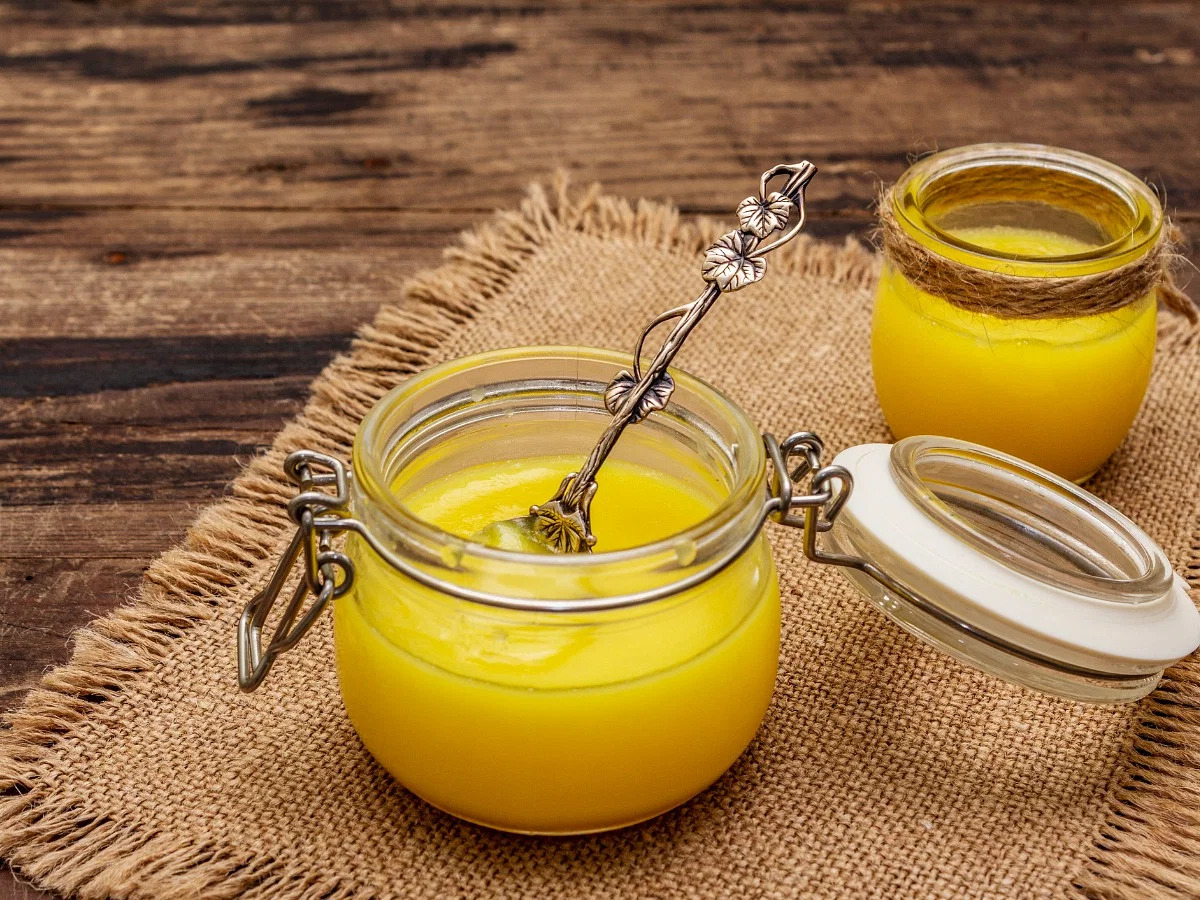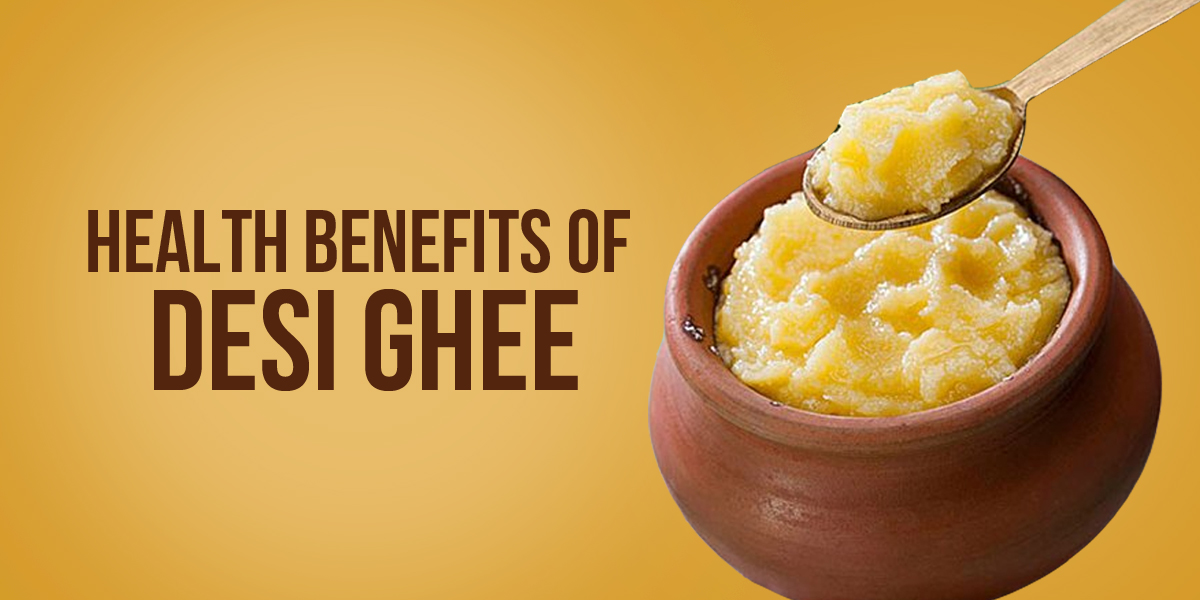Why Ghee Is Good For Health
Why Ghee Is Good For Health – As you know, Ghee is also known as clarified butter and this is created by removing milk solids. This is used for centuries in traditional Indian cuisine. Also, it is widely known for its rich flavor and potential health benefits. If you want to know Why Ghee Is Good For Health then in this article we will explore the reasons so stay with us at the last point.

Ghee is high in fat and it provides high concentrations of monounsaturated Omega-3s. These healthful fatty acids are highly beneficial for the heart health and cardiovascular system. Some studies show that if ghee is used as a part of a balanced diet then this support lowers unhealthy cholesterol levels. It also plays a very important role in balancing the hormone. Here are the Benefits Of Ghee You May Not Have Known that are mentioned below.
Reasons Why Ghee Is Good For Health
Ghee is made with the milk of buffalo and cow and it has several advantages. This is used in Ayurveda for centuries as a healing food. Now, let us move on to the superb health benefits of consuming ghee every day which are given below:
#1. Nutrient-rich composition
Ghee is packed with essential nutrients such as vitamins A, E, and K. These fat-soluble vitamins play crucial roles in maintaining overall health. Vitamin A promotes good vision, healthy skin, and a robust immune system. Furthermore, Vitamin E acts as an antioxidant, protecting the body against cell damage. Vitamin K is essential for blood clotting and bone health.
#2. High smoke point
One of the significant advantages of ghee is its high smoke point. The smoke point refers to the temperature at which an oil begins to smoke and break down, releasing harmful free radicals and toxic compounds. Ghee has a smoke point of around 450°F (232°C), which makes it ideal for high-heat cooking methods such as frying and sauteing.
#3. Lactose and casein-free
Ghee is made by simmering butter to remove the milk solids, including lactose and casein. This process makes ghee suitable for lactose-intolerant individuals and those with dairy sensitivities. While butter contains small amounts of lactose and casein, ghee is considered virtually free of these components, making it a safe option for many people.
#5. Improved digestion
Ghee is known for its digestive properties. It contains butyric acid, a short-chain fatty acid that nourishes the cells of the digestive tract and supports gut health. Butyric acid has anti-inflammatory effects and may help reduce inflammation in the intestines, relieving symptoms of conditions like irritable bowel syndrome (IBS) and Crohn’s disease.
#6. Enhanced nutrient absorption
The healthy fats present in ghee facilitate the absorption of fat-soluble vitamins and minerals from other foods. When consumed along with a nutrient-rich meal, ghee aids in the absorption of essential nutrients, ensuring that your body can effectively utilize them.
#6. Potential anti-inflammatory effects
Ghee contains a variety of fatty acids, including omega-3 and omega-9 fatty acids, which have been linked to anti-inflammatory properties. Chronic inflammation is associated with various health issues such as heart disease, arthritis, and certain types of cancer. By incorporating ghee into your diet, you may help reduce inflammation in the body.
#7. Weight management
Contrary to popular belief, the consumption of healthy fats like those found in ghee can aid in weight management. Ghee is rich in conjugated linoleic acid (CLA), a type of fatty acid that has been shown to promote fat loss and improve body composition. Including moderate amounts of ghee in a balanced diet can contribute to a feeling of satiety, reducing the likelihood of overeating.
#8. Brain health and cognitive function
The omega-3 fatty acids present in ghee are crucial for brain health and cognitive function. These fatty acids support the development and maintenance of brain cells, improve memory, and may even help reduce the risk of neurodegenerative diseases such as Alzheimer’s.
#9. Boosts immune function
Ghee contains antioxidants, including vitamin E and beta-carotene, which can enhance immune function and protect the body against infections and diseases. These antioxidants help neutralize harmful free radicals, reducing oxidative stress and promoting overall health.
#10. Skin and hair benefits
Ghee has been used in traditional Ayurvedic medicine for its skin and hair benefits. It provides deep moisturization to the skin, making it soft and supple. Ghee can also be used topically to soothe dry and irritated skin conditions. When applied to the hair, it helps nourish and strengthen the strands, promoting healthy hair growth.
Conclusion
Here to conclude, we give you the information related to Why Ghee Is Good For Health. This is rich in nutrients and also a versatile cooking fat that has multiple health benefits for the overall body. Due to its anti-inflammatory and immune-boosting effects, this becomes a valuable addition to a healthy lifestyle. Now, you have the Super Benefits of Ghee, add this to your diet today!
Frequently Asked Questions (FAQs)
Question 1. How should ghee be stored?
Answer. Ghee has a long shelf life due to its low moisture content. It should be stored in an airtight container in a cool, dark place, away from direct sunlight and heat. Proper storage will help maintain its freshness and prevent spoilage.
Question 2. Can ghee help boost the immune system?
Answer. Ghee contains antioxidants like vitamin E and beta-carotene, which can support immune function. Antioxidants help neutralize harmful free radicals and reduce oxidative stress in the body. A healthy immune system is crucial for overall well-being and protection against infections and diseases.
Question 3. Does Ghee have any side effects?
Answer. If you consume this in an excess amount then this may increase the risk of obesity and increase weight gain. Excessive saturated fats are unhealthy, so consuming this in limited quantities is better because it can increase the risk of heart disease and stroke.




